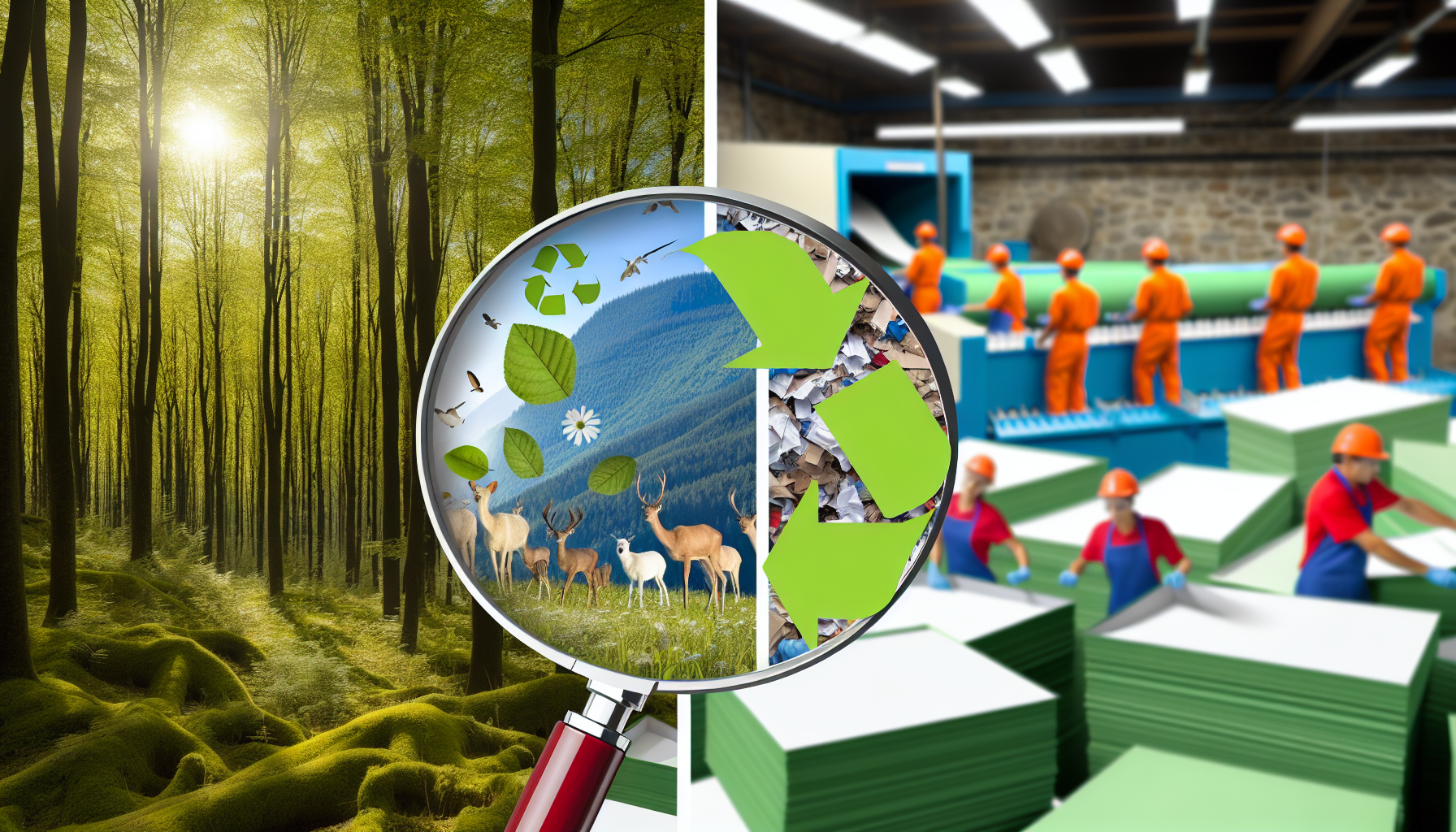Table of Contents
ToggleIs Recycled Paper Really Better for the Environment?
Is recycled paper really better for the environment? It was a sunny Saturday morning when I found myself knee-deep in old magazines, newspapers, and no less than three half-used notebooks. I’d finally decided to tackle the mountain of paper collecting dust in the corner of my home office. It’s funny how you can accumulate stuff without even realizing it. As I sorted through that jumble, a question popped into my head that I’ve heard countless times: Is recycled paper really better for the environment? Well, my experience navigating this heap led me to a few eye-opening conclusions.
The Unexpected Journey into Paper Recycling
As someone who’s always been a bit of an environmental enthusiast, I thought I had all the answers about sustainability, most especially about materials like paper. I’d dutifully tossed everything from paper bills to old birthday cards into the recycling bin. But, it turns out, the story of recycled paper isn’t as simple as it seems. For instance, did you know that it takes more energy to produce recycled paper? Yeah, that was a shocker to me, too.
Up until this point, I’d been blissfully throwing paper into the recycling with no real thought about what came next in the journey. Once it’s out of sight, it might as well be on Mars, am I right? But exploring deeper into the practical aspects of paper recycling was like peeling back the layers on an onion.
An Aha Moment with Paper Mills
I remember visiting a paper mill on a community field trip last year. At the mill, they showcased how both virgin and recycled papers are processed. The guide explained how recycled paper actually has to be cleaned and de-inked, a process which—believe it or not—can be quite water-intensive. Given the water scarcity issues cropping up globally, this was a tough pill to swallow.
In that memento-packed mill, I asked myself again, is recycled paper really better for the environment? I mean, what’s the advantage if it guzzles up water like a thirsty camel? Well, what I gathered was that while recycled paper might require more energy and water, it still has its upsides. For one, utilizing recycled paper significantly reduces the need for virgin wood pulp, which aids in forest conservation. That is a huge win for our planet’s lungs—the forests.
Frustrations and Wins Amidst Eco-Friendly Choices
There was this Saturday when I stumbled upon an ethical printing shop that only used reycled paper. It was my personal eureka moment. The owner talked about how his customers love the more environmental-friendly feel of recycled products and he proudly mentioned the lessened carbon footprint associated with their supply chain.
These stories are corroborated by studies suggesting that recycled paper generates 35% less water pollution and 74% less air pollution compared to making virgin paper. Hearing this made my earlier frustrations melt away. Suddenly, the recycled paper took on a heroic persona in my mind, battling pollution with every sheet.
Practical Tips for Using Recycled Paper
So, here’s a little advice I’d like to share from my own trials and errors:
– Repurpose Before Recycling: Before tossing that old notebook, consider if pages can be used for scratch notes or turned into DIY projects. Every small effort counts. I have tonnes of old notebooks lying around which would have usually ended us in a landfill somewhere or a recycling center but I’m pretty sure, I’m going to find a way to repurpose recycled paper now. I know a little one’s school project is going to come up and who doesn’t like a paper mache volcano?
– Check Product Labels: Not all recycled paper is created equal. Look for labels that certify a product contains 100% post-consumer recycled content. I don’t really bother with labels, but when it means this much reading before buying helps. Don’t just toss the 1st “recycled” paper you see.
– Weigh the Costs and Benefits: Sure, recycled paper might cost a bit more or require more initial resources, but think of the forests protected and the wildlife habitats preserved.
Now, I won’t pretend I have all the answers, but these are tidbits gathered from a journey I didn’t initially want to take. So next time you’re deciding between that sleek, new paper or its slightly grainier recycled cousin, remember these little insights. You might just feel good about going for the latter.
In the end, if you’re asking is recycled paper really better for the environment?, well, it’s a bit like asking if it’s better to reuse or to toss. The answer has layers, and every layer counts.

